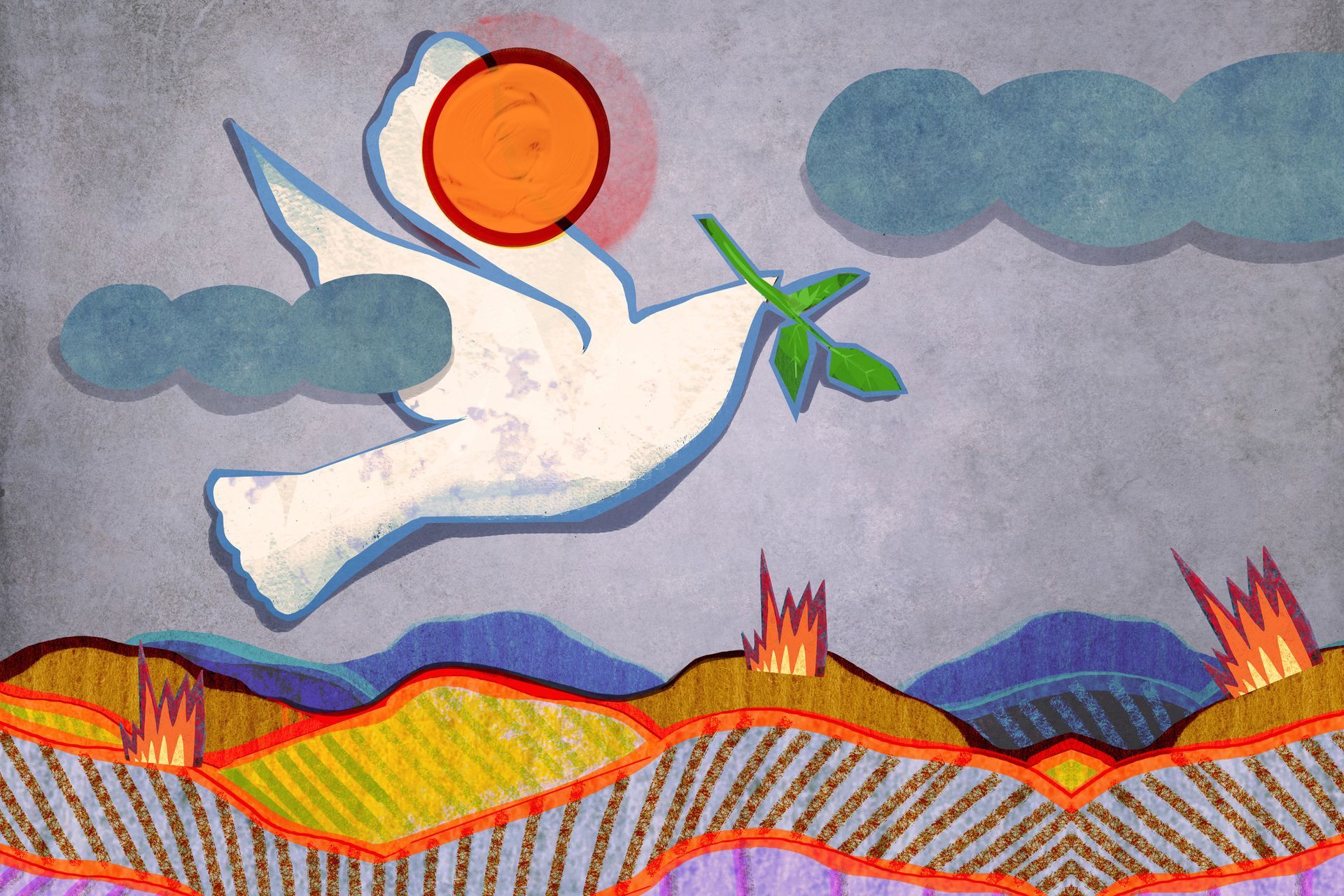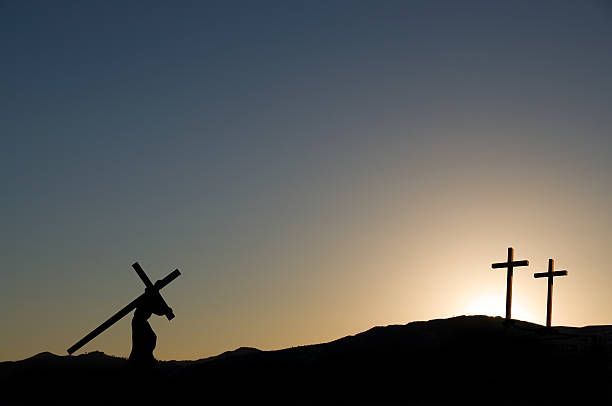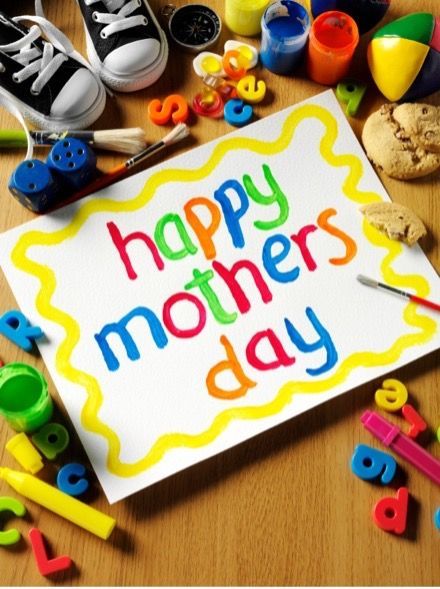Let's Get it Right
February 27, 2020

Have you ever counted up the number of days in Lent? Lent is a season of 40 days, but if you count the days from Ash Wednesday, when Lent begins, to Easter Saturday, when Lent ends, it is more than the 40 days that Lent is supposed to be.
The reason for the difference is that the Sundays in Lent are not included in the 40 days. Lent was a period of fasting and abstinence but, because Sunday is always a reminder of the day of the resurrection, the Sundays were not counted as part of the Lenten season – good news for those who give up chocolate for Lent as you can sneak a piece on Sundays!
One of the main themes of Lent is the temptation of Jesus in the wilderness immediately after His baptism in the River Jordan by John the Baptist. Before Jesus embarked on His ministry, He took time out to make sure He got it right; not only what He had to do but how He should do it. So He spent time alone in prayer and fasting to think things through.
He knew that His purpose was to fulfil the will of His Father for the salvation of men and women, but the big problem was how to get men and women to follow Him. In the loneliness of the wilderness, Jesus was faced with difficult choices (Matt.4.1-13). He could win people by offering them plenty, or pleasure, or by taking political power – but He rejected all of these ways.
To supply the basic needs for everyone (turn stones into bread [v.3]) would make life comfortable for them but not guarantee they would follow His teaching. Some people today claim they will ‘save the world’, or at least solve the present economic problems and environmental crisis, but a ‘better world’ requires more than this.
To provide spectacular entertainment (jump off the highest building in the capital and not get hurt [v.5-6]) would make some people who saw it happy, just as the modern media tries to do 24 hours a day. It may attract attention, but it doesn’t do anything to help people to live better lives or to solve their problems.
To take over political power, by whatever means (all the kingdoms of the world will be yours [v.8-9]), would excite many with its possibilities of position, prestige and control over people. It is easy to name leaders of nations today who choose this way and often end up as dictators, ignoring the needs of their people. Jesus knew this would do nothing to win hearts to the way of truth.
In rejecting all these, Jesus chose the way of service and sacrifice which committed Him, ultimately, to the cross, which is where the season of Lent leads. In love for us He came, lived and died so that, in knowing His love, we might love Him in return and live in the assurance of His love (John 3.16).
It is all about getting it right – in terms of our ambitions and the way in which we seek to fulfil them. In particular, that in the ‘wilderness’ of this life, we make the right choice, not only of the One whom we serve but also the way in which we serve Him.
Let the Sundays in what could be the rather sombre season of Lent be a reminder that Jesus got it right – for you and for me.

I don’t know what the weather will be like when this blog is aired but I am writing this in June when the temperature is reaching 30 o C in some parts of the UK. For those who like the sun, we enjoyed a long sunny spring with little or no rain. With warming temperatures due to climate change, we might hope for hot weather for the holiday season, but, as I write, the present warm weather is expected to end in thunderstorms and heavy rain. Not what most people want for the summer. Some people do like it hot so they can bring out the deckchairs, the barbecues, the paddling pools and the sun lotion. They enjoy every minute of it and hope it lasts all summer long. Others head for the shade and keep out of the sun as much as possible, dreading the sleepless nights. We are not all the same and have different likes and dislikes and that’s a good thing. However, whatever our differences in physique, temperament or preferences, we are all made in the image of God (Genesis 1.26), and our differences reminder us that we cannot pin Him down to our own personal image. We need to see God in other people, even those we disagree with or do not like. At present, the daily headlines from around the world, and from our own land as well, show how little we do that as we hear of conflicts, military, economic and personal, breaking out and continuing to escalate. Our God is the God of the infinite variety of Creation, of which we, in our diversity, are just a part. To destroy or hurt those who bear His image or to damage the environment He created is to turn our back on the Author of Life and to deny His imprint on the people and places which He created. Jesus asks us to love one another (John 15.12), even our enemies (Matt.5.44), because God offers His love to all. Jesus said, ‘He makes His sun to shine on bad and good people alike, and gives rain to those who do good and to those who do evil’ (Matt.5.45[GNB]). In the knowledge that God loves you, I hope you enjoy the summer, whether you are on holiday or not, but finding the sun you desire or the shade you prefer.

One of the highlights of summer is that it is the cricket season, with lots of excitement in the Tests and international as batsmen invent new ways of getting runs – strokes of genius!. The game can be played by local teams up and down the country every weekend in the summer months because of one thing - the long summer days. It is these, with the ability to play long into the evening, that allow the time for the matches to be completed. But we wouldn’t have the long summer days if God had not thought, at the time when He was creating all things and putting everything in its place, to give the Earth an extra twist. When He fixed the Earth at just the right distance from the Sun so that this planet would be neither too hot nor too cold for life, and gave it a size which has just the right mass so that the resulting gravity would hold an envelope of air without making it too difficult for us to move around, He also tilted the planet. Instead of the Earth having a polar axis which went straight up, God tilted it so that the North Pole leans towards the Sun in the summer. As a result, this give us the longer days and warmer weather which is just right for playing cricket. It could be said that this was a stroke of genius, but the whole of Creation, with all the myriad little details which all fit and work together so well, is the work of the only One who really deserves the title of Genius, the Almighty God. It means that we, and God, can enjoy watching those graceful strokes of bat on ball, and hearing the ecstatic shouts of ‘Howzat?’ as fielders seek confirmation that the ball has triumphed over the bat. If God delights in the grace and skills shown in the game of cricket, did He also arrange for its invention as a reflection of the life to which He calls us? Every batsman at the crease is on his own, facing all that the opposition can throw at him - the power and speed of the fast bowler, the guile of the spinner, and the intimidation, both physical and mental, from the surrounding fieldsmen - just as we have to face the difficulties and challenges of a world where evil strives to predominate. There is, of course, some help for the batsman as there is another team-mate out there to give some encouragement and take the pressure off when it is his turn to take strike, just as we have people who will stand by us and walk with us on our journey of faith. There is also the rest of the team back in the pavilion and the supporters shouting their approval of our efforts - the great crowd of witnesses as Hebrews 12.1 [GNB] describes them. Some of the team will be waiting for their turn to walk onto the pitch after watching our efforts. What strokes of genius will we play, with God’s help, in the innings of our life, for the advance of His Kingdom, or what solid defence of the Gospel will we make, to delight the Lord our God and to encourage others as they come to the crease to play their part?

Have you ever heard young children arguing about their fathers & who has the best Dad? It can get a bit competitive, starting simply with ‘My Dad’s better than your Dad!’, but going on to pick out personal details. ‘My Dad’s bigger than you Dad!’ My Dad’s stronger than your Dad! My Dad’s got more money than your Dad! My Dad can do this … or that … or the other … better ! There may be a degree of truth in these claims, but often, if the argument goes on long enough, there is likely to be more than a little exaggeration as each child tries to justify how good their parent is and builds into their description something of the ‘ideal’ father of their imagination. In many ways, our father is better than any other father simply because he is our father and we know that he loves and cares for us. It is interesting that, in comparing fathers, children rarely say ‘My Dad’s better than your Dad because he loves me more, cares for me more, teaches me right from wrong’. After all, these are the things which count more in bringing up a child well. The best Father, without exaggeration, is our heavenly Father. Jesus, the Son of God, taught that we could call Him our ‘Father’. He will be our Father if we join His family, Through faith in Jesus as the Son of God and following Him, we can become children of God, brothers and sisters of the Lord Jesus. God is an Eternal Father an Almighty Father a Loving & Compassionate Father No exaggeration! He will not always give us what we want, as He wants the best for us, but He will be always there for us & we are always in His love and care.

There are two great occasions in the Bible when fifty days elapse between very special and significant events. In each case, the fifty days separates a sacrifice from the appearance of fire with the Word of God and the Power of God. The first occurred when the Israelites, in slavery in Egypt, followed God’s command to sacrifice a lamb and mark the doorposts of their houses with its blood (Exod.12.1-3,5-7). As a result, the angel of the Lord would pass over and only the first-born of the Egyptians would be slain (Exod.12.12-13). Because of this, Pharaoh allowed the Children of Israel to leave Egypt. Following this Passover and their exodus from Egypt, the Israelites journeyed to Mount Sinai and, on the fiftieth day, God descended in fire upon the mountain and met with Moses, giving him the Ten Commandments (Exod.20.1-17). To commemorate this event, an annual celebration of the giving of the Law was instituted. It was called the Feast of Weeks (for it was seven full weeks after Passover) or the Feast of the Fiftieth Day (Pentecost). It was also called by other names, including the Feast of Harvest or of First-Fruits, as it became a celebration of the wheat harvest as well. It was one of these celebrations, more than 1,000 years later, which became the second great occasion. Fifty days after the Resurrection, the Holy Spirit descended, in the outward appearance of fire and the sound of wind, on the disciples assembled in the upper room. The promise made by Jesus that He would send a Helper who would stay with them and reveal the truth about God (John 14.15-17) had been fulfilled. The original Passover, signified by the sacrifice of a lamb in each household, freed the Jews physically from the bondage of slavery in Egypt. In the same way, the crucifixion of Jesus, the sacrifice of the Lamb of God at Passover time, ‘sacrificed for the people’ according to Caiaphas the High Priest (John 11.49-50), has redeemed us from the slavery to sin. As the giving of the Law on Mount Sinai directed the Israelites to the way by which they could live which was pleasing to God, so the coming of the Holy Spirit in the upper room (Acts 2.1-4) has provided the power by which Christians can live the Christian life. The redemption of Israel was transformed, through the Cross and the Resurrection, into the redemption for all mankind. The Law given to the Israelites as an external pointer to the right way of living became, in the Holy Spirit at Pentecost, the inner means for truly living the redeemed life in Jesus Christ. This is now celebrated by the Christian Church, We could do with another of those fifty day occasions today.

It may have been better for the modern mind if Jesus had ridden off into the sunset, as cowboy heroes sometimes do in Westerns, rather than to have ‘ascended’. We have difficulty with the concept of ascension but ‘Up, Up and Away’, taken up and obscured by a cloud, might have been the only way that God could have enabled those followers of Jesus assembled on the Mount of Olives to understand that Jesus had returned to His Father’s presence (Acts 1.6-11). Being lifted up into this cloud signifies the exaltation of Jesus to the highest place as the eternal, transcendent God, one with the Trinity. He who ‘humbled Himself and became obedient unto death’ has returned to take again the divine prerogatives He gave up for a time when He became a man, and is now the exalted Lord of all (Phil. 2.5-11). But ‘Up, Up and Away’ does not mean that the Ascension is Jesus’ ‘escape’ from the world. Far from it, for it tells us that Jesus is no longer subject to the physical limitations that we experience. He is present with His people in the whole of the world because He is no longer confined by our dimensions of time and space. Neither does ‘Up, Up and Away’ mean that our eyes should only be fixed on the skies for His promised return. The angelic messengers asked the disciples, ‘Men of Israel, why do you stand looking up toward heaven?’ - a reminder that Jesus had called them to an on-going work (Acts 1.8). With Christ’s Ascension, we do look up in thankfulness and praise, because His return to the unity of the Godhead confirms that everything has been done to ensure our salvation. He is not only our Crucified and Risen Saviour, He is also our Mediator and Advocate in the presence of the Father, the guarantee of all the divine promises of the Gospel. But we also keep our feet on the ground for Jesus has left us with - an Unfinished Task Matthew 28.19 an Unchanging Message John 3.16 an Unfailing Promise Matthew 28.20b The disciples returned to Jerusalem to continue, in witness and through prayer, the work given to them, knowing that they could both engage with the world and look to Christ’s coming again because of their Living and Ascended Lord. He calls us to do the same.

At this time when we are celebrating the 80th anniversary of VE- Victory in Europe) Day, many situations around the world remind us that, if ever there was a need for peacemakers, at every level, it is now : but then, that could probably be said in every age. VE-Day has given us relative peace but there are still major conflicts which hit the news headlines regularly, in Ukraine, Gaza, Sudan. There are also minor wars, if any war can be considered ‘minor’, & civil wars in many places, as well as violent conflict between groups and individuals everywhere. Micah’s prophesy (Micah.4.2-5) about swords being turned into ploughs - items of destruction becoming means of production of basic necessities - again seems to be taking a back place as European nations commit to greater spending on armaments as Russia issues ever more aggressive threats. There are various ways of seeking peace. At one extreme is the active extermination of enemies, which seems to be the choice of the present Israeli government in Gaza. At the other extreme is the passive acceptance of things and surrender to a much more powerful aggressor, which is perhaps what Putin hoped for when he ordered the Russian invasion of Ukraine. Neither are satisfactory as they leave feelings of anger & resentment in those communities subjugated. Even ‘peace treaties’, especially when imposed by one side on the other, often contain the seeds of future conflict, leading to resentment and further clouding of relationships by suspicion & mistrust. Conditions included in the Treaty of Versailles, which ended the First World War, ‘the war to end all wars’, directly led to the return of conflict in Europe only a few years later. Peace is much more than the cessation of hostilities, good as that is. The Biblical idea of peace is summed up in the Hebrew greeting ‘Shalom’ - ‘Peace be with you’ - the greeting Jesus gave His disciples when He came to them after the Resurrection (John 20.19). Shalom is never seen simply as a negative state, that freedom from all trouble which many assume is peace. Rather, it is something totally positive, for it means having everything which makes for a person's highest good - not just for yourself and your family, but also for those to whom you give, and should give, the greeting ‘Shalom!’ True peacemaking is not easy at any level, whether it is between nations or groups or individuals. It requires understanding and compassion, time and effort, to bring the opposing sides together to reconcile their differences. It has been said that the peacemaker ‘does not just pull up the weeds of hatred, discord and submission but sows seeds of love, understanding and brotherliness’. There is much peacemaking needed between neighbours, individuals and within families to reconcile the hurts, resentments and other ‘barriers’ which divide people into ‘them and us’. We are all involved, for the Lord's people are called to the work of spreading the gospel of peace by word and of promoting reconciliation by action and example. As St Paul wrote, God ‘reconciled us to Himself and gave us the ministry of reconciliation … and has committed to us the message of reconciliation’ (2 Cor.5.18, 19b). Peacemaking is not just the preserve of international diplomats who are called on to try to resolve the major issues between combative nations. It is also for those whom St Paul defines as ‘Christ‘s ambassadors’ (2 Cor.5.20) - you and I. ‘Blessed are the peacemakers’ (Matt.5.9).

The Bible tells us that there is great angelic choir singing praises in heaven, & sometimes on earth. The sound and the harmony are obviously ‘out of this world’. One of our hymns begins ‘There is singing up in heaven such as we have never known’. But what do the angels sing? In his vision of the Lord God sitting on His throne (Isa.6.1-4), Isaiah said that the creatures round the throne were calling to each other : ‘Holy, holy, holy is the Lord Almighty, the whole earth is full of His glory!’ There could be special hymns for specific occasions. At the Incarnation, the shepherds on the hills above Bethlehem saw and heard the heavenly hosts singing ‘Glory to God in the highest heaven - Gloria in excelsis Deo - and peace on earth to those with whom He is pleased!’ (Luke 2.14 (GNB]). Which is why we have the carol ‘Hark the herald angels sing’. I don’t know what the angels would have sung on the first Good Friday. Perhaps they were too dumbfounded and gob-smacked to sing anything as they saw Jesus, the Son of God, die on the cross in pain and agony, shame and humiliation. Why could God allow this to happen - the worst possible death for the only good and divine person, and for it to be for people who habitually failed to do what was right and good? It was the supreme act of love for the redemption of humankind. If there was nothing the angels could sing on that day of darkness, it changed dramatically on the first Easter morning when it was the disciples who were dumbfounded. The women who went early to the tomb in which Jesus had been laid found it empty (Luke 24.1-3). He had risen from the grave, defeating death and sin. To my mind, there is only one song which the angels could have sung – a chorus of ‘Hallelujahs’. Meaning ‘Praise the Lord’, it is the song we all should sing when we discover that Jesus died for each one of us to bring us forgiveness for our sins so that we can come before God and, in course of time, join in the singing of the angelic choir. ‘Hallelujah’ is the high point of Handel’s ‘Messiah’, but even that, great as it is, falls short of the heavenly version. The hymn I quoted earlier which begins ‘There is singing up in heaven’ goes on to say ‘where angels sing the praises of the Lamb upon the throne’, the Lamb of God, Jesus who willingly went to the Cross so that our sins could be forgiven (1 John 2.2). The praise of the angels for the One who gave up His life for us is recorded in Scripture. John in his vision of heaven saw ‘ten thousand times ten thousand’ sing ‘Worthy is the Lamb, who was slain, to receive power, and riches, and wisdom, and strength, and honour, and glory, and blessing’ (Rev.5.11-12). That is another great chorus in Handel’s ‘Messiah’, the penultimate chorus before the climactic ‘Amen’ (as in Rev.7.11-12). For those who recognise that Christ’s rising on Easter morning is personal for them and respond by acknowledging Him as Saviour and serving Him as Lord, Easter is a time to join with the angels and shout ‘Hallelujah, it’s Easter!’ - praise be to God for His great salvation. In fact, it is always time to give thanks and sing redemption’s story.

Mankind doesn’t seem to change. People often engage in building ‘empires’, be they small and personal or large and political. Leaders of nations strive to build up their power and hold on to it by any means they can think of, because they are fearful that others will come along to take over. It was the same in Jesus’ day. At His birth, Herod sought to kill the baby born in Bethlehem as he perceived in Him a threat to his crown (Matt.2.16). At the end of His life, the Romans used extreme measures to subdue any opposition and retain control of their empire. The religious leaders in Jerusalem were no different. They resorted to secret arrest, an unlawful trial and ‘doctoring’ the charges to ensure the execution of the man they feared. In their hastily called meeting of the Sanhedrin, they found Jesus guilty of blasphemy, but changed the accusation to treason, to make sure He received the death penalty when they brought Him before the Roman governor, Pontius Pilate. The result was that, although innocent, He was condemned to the slow painful, shameful death of crucifixion. Those who would build empires today, as Putin seems to want to do for Russia, and even Trump wants to do for America with his suggestions of taking over Greenland, amalgamating Canada with the USA and renaming the Gulf of Mexico as the Gulf of America, follow in the wake of a line of ‘empire builders’ in the past 100 years who have used misinformation and false accusations to justify their ambition, and violence to enforce it. Jesus was at the centre of all the action on Good Friday, wrongly arrested, falsely condemned, unjustly crucified. He accepted it all, humbly submitting to the abuse and torture (Mark 14.65, 15.16-20), before facing the terror of the cross. In great humility and in obedience to His Father’s will, He gave up His life for our salvation, offering us forgiveness for our sins and eternal life in the Kingdom of God as we accept Him as our Lord and Saviour and seek to live in His way. As the execution party laid Him on the cross and drove the nails into His hands and feet, Jesus prayed for their forgiveness (Luke 23.34). There can be no greater example of the gulf, which still exists today, between man’s inhumanity and God’s love for humanity. Christ calls us to follow Him and in humility and love to change the inhumanity still so obvious in the world, and in the actions of those who seek power today, by showing true humanity in our daily living, the humanity of Christ shown in His love, compassion, care and concern for all.

The day on which Jesus rode into Jerusalem on a donkey, the day we call Palm Sunday, raised the hopes of a good number of people. It seemed as if their dreams might indeed have some solid foundation. This was a day of great expectations. For the disciples, walking alongside Jesus, there was the hope that, at last, their leader was being recognised for who He was. Slowly, over the 3 years they had been with Him, hearing His teaching and seeing the miracles He had performed, they had come to realise how special Jesus was and, eventually, when Jesus had questioned them, acknowledged He was God’s appointed Messiah, the one long-awaited who would save the nation (Mark 9.27-29). If the people would also acclaim Jesus as the Messiah, what hopes and dreams would be growing in their minds as, step by step, the disciples accompanied Jesus on His approach to the city gate. Great expectations! The crowd of pilgrims coming into Jerusalem at the same time, to celebrate the Passover, would have had their own expectations. Their hopes would be stirred up by the religious fervour of the festival, and by national resentment against the Romans who ruled their land. It was a time when there would be dreams of religious revival and possibly an insurrection which would drive out the Romans. Great expectations! And now they were aware that there was one in their midst who, from what they had heard about Him, might just be the man they were looking to lead them. No wonder they shouted ‘Praise God! God bless him who comes in the name of the Lord! God bless the King of Israel!’ (John12.13), greeting Him by waving palm branches and spreading their cloaks before Him on the road. But there were others with different hopes and expectations. The Pharisees and the religious leaders had a very different view of Jesus as they saw Him coming into the city. In their estimation, He was a challenge to their authority and a threat to their position and status (John 12.19). For a long time they had been plotting to get rid of Him (John 5.15-18 [AV]) and now He was coming into their ‘territory’. They had high hopes that, at last, they would have a chance to finally ‘dispose’ of Him. Jesus was aware of all these hopes and dreams and expectations. He knew that none of them would be fulfilled, at least not in the way that was expected. As He entered Jerusalem, He knew that, only days ahead, He would be crucified. The dreams of the disciples would be dashed; the hopes of the people for a military defeat of the Romans would come to nothing; only the religious leaders would think that their expectations had been achieved. But even they would soon be dismayed, for Easter lay ahead & Jesus would have great expectations of His followers.

Dads may forget our birthday, and some even struggle to remember how old we are, but mothers never forget. They knew us from our first stirrings within them before we were born. They remember the moment when, in pain, they gave us life. They can recall all the little incidents as we grew up. So we are always their child. But that makes them protective of us. They are there when we need them. They give us what we need to help us, rather than what we want. They point us in the right direction. They support us as we try to do things and encourage us in our ambitions. They understand us better than we understand ourselves and feel the pain of our failures and troubles. They give us their love unconditionally, whether we deserve it or not, because we are always their child. Unfortunately, we often fail to realise all this as we try to grow up, perhaps resentful that our mother still looks on us as their ‘child’, no matter how old we may be. It is not that she doesn’t want us to grow up but that we are precious to her because she has given us life and wants the best for us. However, we don’t realise how precious our mother is until she is no longer there to give us her love and support. It is significant that all I have said about the virtues of a good mother can also be seen in the character of God (even though we normally refer to Him in prayer as ‘Our Father …’). He is there for us when we need Him and will listen when we talk to Him. He will give us what we need rather than what we desire for He wants the best for us. If we listen to the Holy Spirit, He points us in the right direction. He will support us as we try to do the right things. He understands us better than we understand ourselves and feels the pain of our failings and troubles. He gives us His unconditional love, whether we deserve it or not. And why? Because we are His children! All He asks is that we make the choice to become part of His family again, and live as part of His family, for then He says, ‘You will be My sons and daughters’. That is the privilege of being children of the Kingdom of God. For God to call you His child is something which is priceless. We shouldn’t want to grow up so much that we want to put ourselves beyond that.
